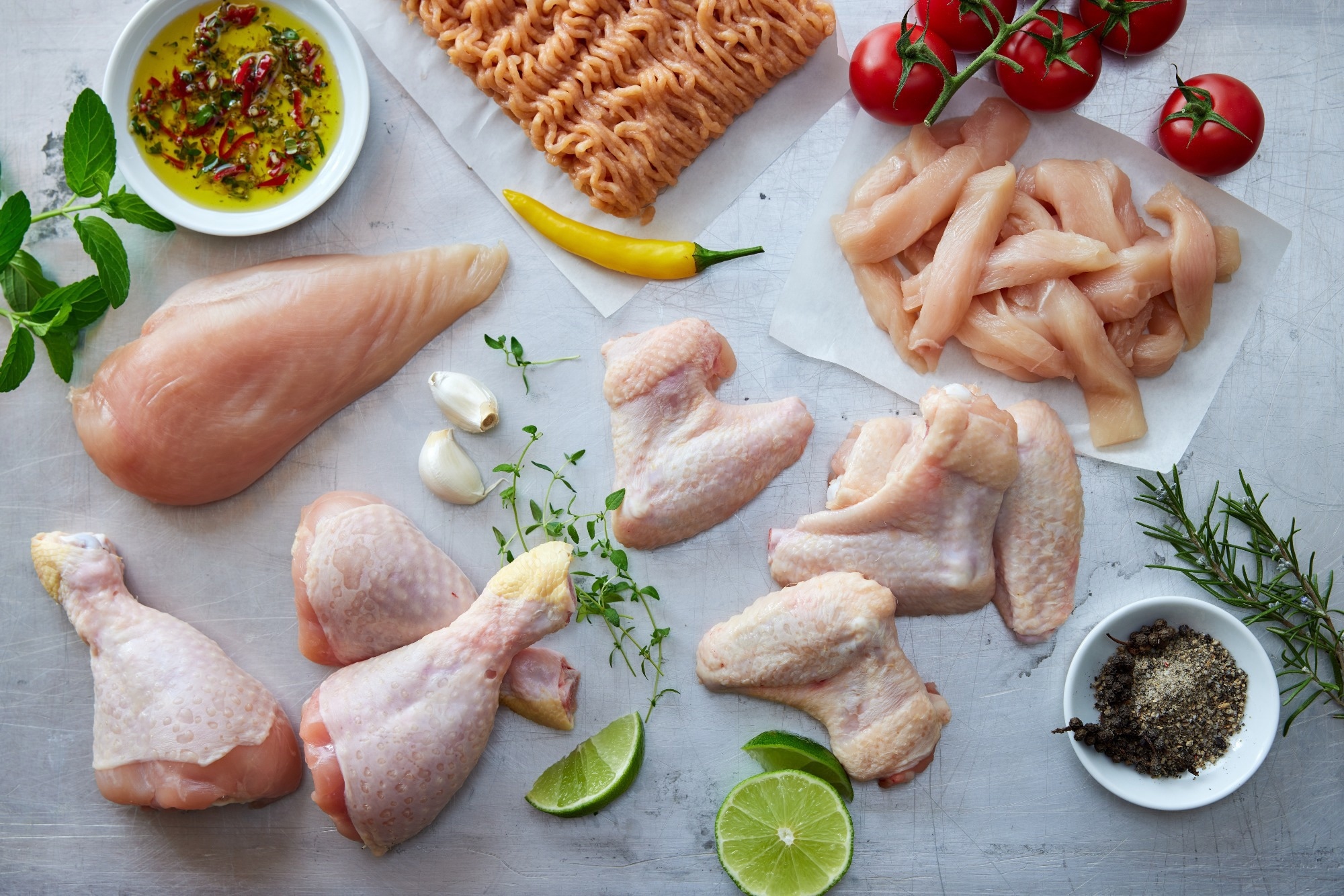An Italian study challenges the "white meat is safer" notion, showing that high poultry consumption, over 300 g weekly, may double gastrointestinal cancer death risk, particularly among men.
 Study: Does Poultry Consumption Increase the Risk of Mortality for Gastrointestinal Cancers? A Preliminary Competing Risk Analysis. Image Credit: stockcreations / Shutterstock.com
Study: Does Poultry Consumption Increase the Risk of Mortality for Gastrointestinal Cancers? A Preliminary Competing Risk Analysis. Image Credit: stockcreations / Shutterstock.com
In a recent study published in the journal Nutrients, researchers investigated the relationship between consuming poultry meat and the incidence of gastrointestinal cancers (GCs) and other causes of mortality.
Is white meat healthier than red meat?
According to the 2013 Instituto di Servizi per il Mercato Agricolo Alimentare (ISMEA) report, conducted in Italy, weekly poultry consumption was estimated to be 13.3 kg per capita worldwide. Rising rates of poultry consumption have also been reported in Italy over the past decade, increasing from 11.7 kg per capita to the current rate of 12.7 kg per capita.
Poultry is a broad term that encompasses all forms of birds, including chickens, turkeys, ducks, geese, guineas, and game birds such as quail and pheasants. The Dietary Guidelines for Americans (DGA) recommends 100 g as a standard portion for poultry that can be consumed between one and three times each week.
Compared to meat from other sources, poultry is typically lower in fat content. However, widespread industrial processing of poultry products has reduced their nutritional value by adding sodium, saturated fat, sugar, and preservatives into these foods. In fact, current estimates indicate that 26% of the poultry products are processed in the form of hamburger meat, kebabs, rolls, and bites.
The International Agency for Research on Cancer has defined meat as carcinogenic to humans, with red meat probably carcinogenic to humans. Existing evidence indicates that the association between meat consumption and cancer risk is primarily attributed to the intake of red and processed meat. However, it remains unclear whether consuming white meat may also increase the risk of cancer, particularly those affecting the gastrointestinal tract.
About the study
A total of 4,869 participants from the MICOL and NUTRIHEP study cohorts were included in the current analysis. Food and beverage consumption was recorded using the European Prospective Investigation on Cancer (EPIC) Food Frequency Questionnaire (FFQ).
Total meat consumption was stratified by weekly increments of 100 g, from less than 200 g to over 400 g every week. Red meat included lamb, pig, calf, and horse meat, whereas rabbit and poultry were considered white meat.
Red meat consumption was classified by 50 g increments, ranging from less than 150 g to over 350 g per week. Poultry consumption was stratified by 100 g increments, ranging from less than 100 g to over 300 g, every week.
Study findings
The mean age of the survivors was 66 years, whereas 21% of the cohort died by the end of the study period. The overall mean age at death was 81 years, with men and women dying at a mean of 80 and 83 years, respectively.
GCs accounted for 11% of deaths, most of which were due to colorectal cancer (CRC), whereas 18% of individuals died due to other cancers. The remaining deaths were caused by cardiovascular disease (CVD) and dementia.
Meat consumption
Among individuals who died of non-GC cancers, red meat accounted for over 65% of their total meat intake as compared to 56% and 58% among those who died of GC and other causes, respectively. White meat consumption was highest among those who died of GC, with poultry intake accounting for 33% of their white meat intake.
Cancer mortality
About 56% of cancer-related deaths occurred in individuals who consumed over 400 g of meat every week, largely as part of the Mediterranean diet. Study participants who died of other causes reported total meat intake in the second-highest category.
High red meat consumption was also associated with non-GC cancer deaths. In contrast, a weekly meat intake of 200-300 g was associated with an overall 20% reduced mortality risk from all causes, with this risk further reduced to 27% among men. Study participants who consumed 150-250 g of red meat every week were 29% less likely to die from all causes.
White meat consumption, specifically poultry, correlated with GC deaths. Mortality from all causes rose by 27% among those who consumed over 300 g of poultry weekly, with this risk particularly high at 61% among men. Deaths from other causes and cancers were associated with lower levels of poultry consumption.
Consuming 100-200 g of poultry weekly was associated with a 65% increased risk of dying from GC, as compared to other cancers, which was dose-dependent. Individuals who consumed over 300 g of poultry every week were 127% more likely to die from GC, with this risk even greater at 161% among men.
Compared to other risks, GC mortality was 54% less likely among those who consumed between 200 and 300 g of total meat weekly, as compared to those who consumed more than 200 g. This risk reduction was particularly evident among men, at a rate of 68%.
Conclusions
Poultry consumption above 300 g/week is associated with a statistically significant increased mortality risk both from all causes and from GCs.”
Future studies are needed to validate these findings and elucidate the role of processed poultry in the increased risk of gastrointestinal cancer-related mortality.
Journal reference:
- Bonfiglio, C., Tatoli, R., Donghia, R., et al. (2025). Does Poultry Consumption Increase the Risk of Mortality for Gastrointestinal Cancers? A Preliminary Competing Risk Analysis. Nutrients. doi:10.3390/nu17081370.